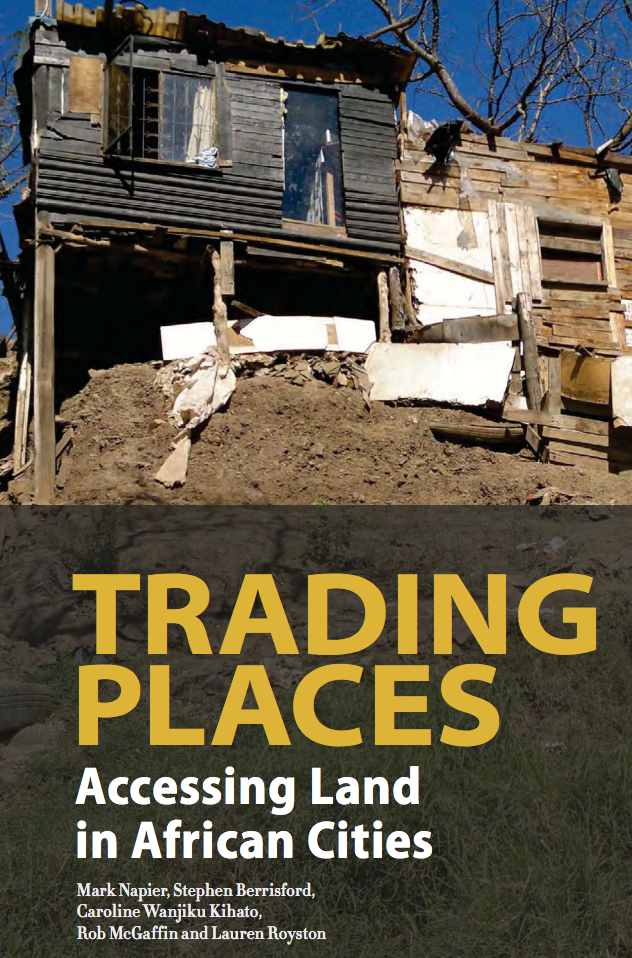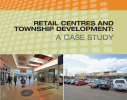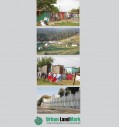Location
"Urban LandMark" is short for the Urban Land Markets Programme Southern Africa. Based in Pretoria, the programme was set up in May 2006 with seven years of funding from the UK's Department for International Development until March 2013. The initiative is now hosted at the Council for Scientific and Industrial Research in South Africa.
Urban LandMark was designed to play a short-term, catalytic role. Between 2006 and 2013 it was financially managed by FinMark Trust. FinMark Trust is already applying the 'making markets work for the poor' thinking in financial and housing markets, which are relevant to the urban land markets question.
What we do
Urban LandMark is working to make urban land markets work for the poor by:
- Defining what 'making markets work for the poor' means for urban land and developing a distinctive voice for this approach,
- Mobilising diverse players, including the private sector and civil society, to come up with innovative ways to achieve this objective,
- Promoting policy dialogue between people , and
- Bringing about change in government policy and implementation, and in private sector praxis.
Five areas of activity
Research
Research projects cover four sectors: people, place, governance and the market, in an integrated way.
Dissemination
Research is disseminated widely to industry, government, NGOs and other interested people.
Support
Individuals affiliated with Urban LandMark are available to government and the private sector to take part in task teams.
Professional development
To ensure industry professionals incorporate MMW4P ideas in their work, we assist with the development of courses and academic exchange programmes as well as forums and seminars.
Networking and advocacy
We develop and maintain relationships with industry and government players, and build partnerships with academic institutions and organisations, local and international, working on urban land issues to share information and participate in joint activities.
Members:
Resources
Displaying 1 - 5 of 36Trading Places: Accessing Land in African Cities
Trading Places is about urban land markets in African cities. It explores how local practice, land governance and markets interact to shape the ways that people at society's margins access land to build their livelihoods.
The authors argue that the problem is not with markets per se, but in the unequal ways in which market access is structured. They make the case for more equal access to urban land markets, not only for ethical reasons, but because it makes economic sense for growing cities and towns.
Retail centres and township development
This case study is based on an existing booklet, Retail Centres and Township Developments: A Case Study (SACN, 2010) published by the South African Cities Network (SACN), the Training for Township Renewal Initiative (TTRI) and National Treasury. The booklet draws on prior research on
Land governance in South Africa
The World Bank in 2010/11 undertook an in-depth review of land governance and land policy in South Africa, with Urban LandMark managing the process and implementing a Land Governance Assessment Framework (LGAF) for South Africa.
Angola and informal land tenure arrangements
This case study draws on research that investigated the extensive informal land market in Luanda, Angola. It examines how urban land is transacted and the mechanisms by which it is secured and regulated. The case study is based on research undertaken by
Land governance in South Africa: implementing the Land Governance Assessment Framework
The Land Governance Assessment Framework (LGAF) is an innovative and participatory diagnostic tool that assesses the state of land governance in a country. This booklet summarises the results of the LGAF process in South Africa.
The paper indicates that the application of the LGAF in South Africa has been challenging. The country has a well-developed economy, including a well-functioning formal land market. However, informal systems, especially within the communal land areas, are steeped in oral tradition and practice.
The observations made during the LGAF process include:






